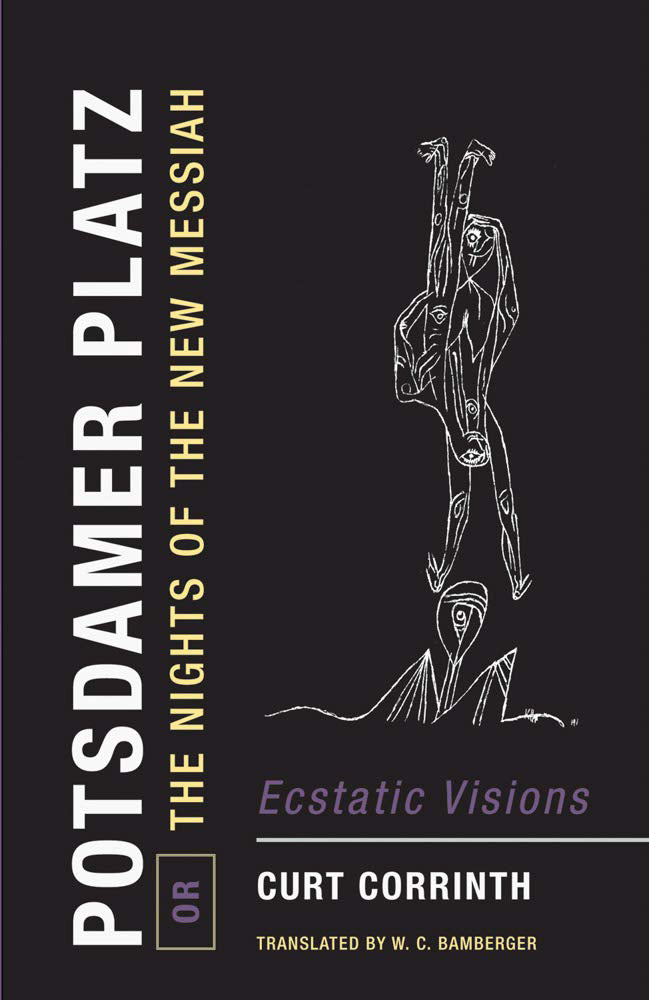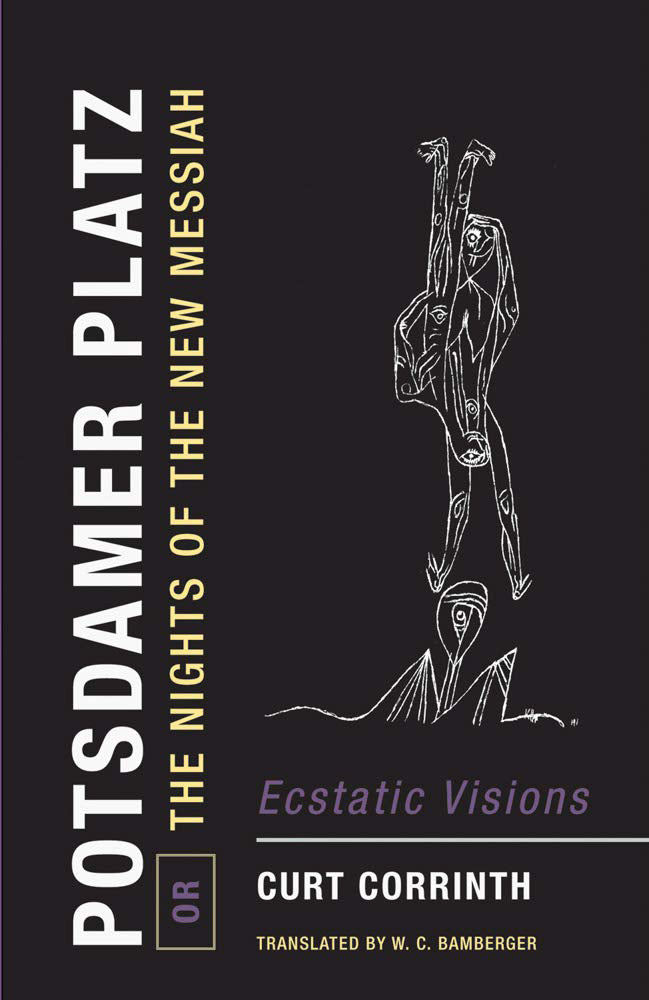Potsdamer Platz; or, The Nights of the New Messiah: Ecstatic Visions
Potsdamer Platz; or, The Nights of the New Messiah: Ecstatic Visions
Curt Corrinth
Couldn't load pickup availability
Illustrated by Paul Klee / Translated, with an introduction, by W. C. Bamberger / June 2021 / 4.5 x 7, 112 pp. / 978-1-939663-67-2
First published in German in 1919, Potsdamer Platz was Curt Corrinth’s first novel to employ an Expressionist, frenetic prose and presented his excessive vision of free love. Inspired by Freud’s controversial disciple, Otto Gross, and his theory on sexual relations, Corrinth took this outlook to new extremes to preach the sexual orgy as a means to salvation and universal copulation as a new world religion.
The book’s provincial protagonist, Hans Termaden, arrives in Berlin, where he quickly evolves from city rube to sexual messiah as he converts prostitutes and virgins into sensual warriors and frees men of sexual inhibitions. As word of his exploits spreads, people throughout the city flock to his headquarters in Potsdamer Platz, turning all buildings into brothels as Berlin itself swells with an influx of population from England, France, and Mexico. Police and army attempt to bring order but themselves defect to take part in the spreading copulation as Corrinth’s prose itself begins to fragment and melt on the page.
Decried in its time as tastelessly over the top and more erotomaniacally obsessed than ecstatic in its vision, Potsdamer Platz today reflects its turbulent era and can be read as a portal into the cultural excesses of Weimar Berlin. This first English translation includes the original illustrations done by Paul Klee for the book’s 1920 deluxe edition.
Curt Corrinth (1894–1960) studied law until serving in the military in World War I, which resulted in his embracing an antiwar and anti-bourgeois stance through his poetry and then through a series of frenetically composed novels. Influenced by Freud’s maverick disciple, Otto Gross, Corrinth took Gross’s doctrine of free love to further, near parodic extremes in these novels, three of which would be banned by the Nazis in 1933. In 1955, he moved to the GDR in East Berlin, where he died five years later, his work all but forgotten in the western world.
Press
“Potsdamer Platz promises Ecstatic Visions, and it certainly delivers. Curt Corrinth's short novel is one of almost comic expressionistic excess.”
—M. A. Orthofer, The Complete Review
“Like all good books, it is hard to tell how serious Corrinth is about the whole thing. Like the most amusing of books, it doesn’t hardly matter. As frenzy piles on frenzy, his language atomizes and splits. Utopia takes over and destroys all the old communication processes”
—Martin Billheimer, Counterpunch
“An exercise in ardent, flamboyant kitsch that is quickly paced and imaginatively thorough.”
—Tom Bowden, Book Beat


